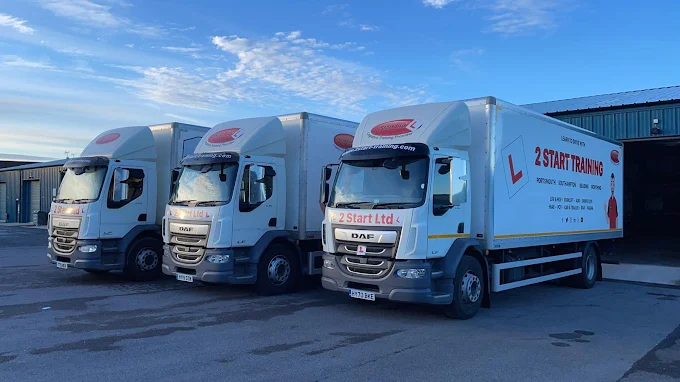What is the Supply Chain Warehouse Operative Apprenticeship?
The Storage and Warehousing Operative (level 2) apprenticeship enables an apprentice to qualify to work safely in a warehouse or supply chain operation. They can additionally qualify to become a forklift operator, as well as meeting the requirements of the Institute for Apprenticeships and Technical Education standards.

Download Our Apprenticeship Brochure Today

What’s received?
- Access to online E-folio
- Access to bespoke learning for functional skills (if applicable)
- Access to bespoke online courses
- Completion of all driver training and licence acquisition
- Completion of eight bespoke CPD modules
- Completion of the sixteen apprenticeship modules
- It’s a block release course (student comes to us when needed, not day release)
- Option to add bolt-on courses for a reduced cost.
Ofsted Report
We are proud to be rated ‘Good’ by Ofsted, which means our apprenticeship training has been independently recognised for its quality, effectiveness, and learner support. For employers, this provides reassurance that your apprentices will receive structured, high-quality training that meets national standards and delivers real results in the workplace.

How does the apprenticeship work?
For employers, apprenticeships are a highly cost-effective way to train staff, with training costs covered by up to 100% government funding. They aren’t just for school leavers, anyone aged 16 or over is eligible, with no upper age limit. This means you can use apprenticeships not only to recruit and train new team members but also to upskill or retrain existing employees.
The Urban Driver Apprenticeship runs for a minimum of eight months. During this time, apprentices need around six hours per week for off-the-job training. This can be scheduled flexibly to fit around busy trading periods. Off-the-job training includes completing e-learning modules, shadowing, and undertaking the required learning activities to achieve the qualification.
Each apprentice will have access to their own online apprenticeship platform, where all training resources are uploaded and progress is tracked. As an employer, you’ll also have access to this system, allowing you to monitor their development week by week.
To get started or find out more, all you need to do as the employer is book a free discovery call with our apprenticeship manager, Nicky.
Arrange Your Discovery CallWhat will it cost you as an employer?
If your business is a levy-paying employer (meaning your annual payroll is over £3 million, so you already pay into the government’s Apprenticeship Levy), then the apprenticeship training is fully funded for you.
If your business is not levy-paying (most smaller and medium employers fall into this category), you only pay 5% of the total course cost, and the government funds the remaining 95%. For this course, the contribution is £250.00
How much time/ commitment is required?
An apprenticeship typically requires around six hours per week of off-the-job training, though this is flexible and can include activities such as e-learning, shadowing colleagues, or practical tasks related to the role.
The full programme usually lasts around 8 months; however, the training is designed to fit around the needs of the business, ensuring apprentices can continue contributing to their role while developing new skills.
Is it only available for school leavers?
No, apprenticeships aren’t just for young people finishing school. They are open to anyone aged 16 and over, with no upper age limit. This means they can be used not only to recruit and train new staff, but also to upskill or retrain existing employees, and even support career changers who want to gain recognised qualifications while working.
For employers, this makes apprenticeships a flexible and cost-effective way to build skills across the workforce.
Types of training
- Off-the-job (20%)
- ‘Off-the-job’ training is delivered by 2 Start Ltd during your apprentice’s normal working hours.
- On-the-job (80%)
- ‘On-the-job’ training is delivered by the employer during your apprentice’s normal working hours.











